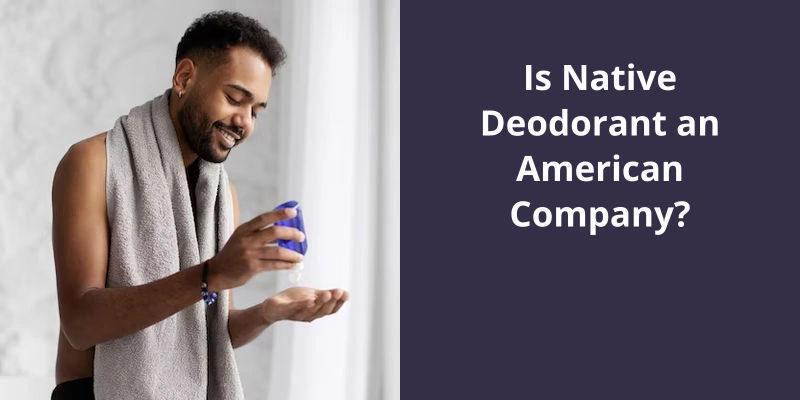Yes, Native Deodorant is an American company. It was founded in San Francisco, California, in the year 2015 by Moiz Ali. The company focuses on creating personal care products that are made from safe and simple ingredients. It is well-known for its paraben-free and aluminum-free deodorants. Even though it was acquired by Procter & Gamble in November 2017, it still operates in the USA, maintaining its commitment to natural ingredients in its product lines.

Does Procter and Gamble Own Native Deodorant?
Native Deodorant, a popular brand known for it’s natural and aluminum-free deodorant, has indeed been under the ownership of consumer goods giant Procter & Gamble (P&G) for the past three years. This acquisition has had a significant impact on the brands growth, particularly in physical retail sales, which have surged from virtually non-existent to representing 50% of it’s overall business since joining forces with P&G.
Although Native Deodorant has experienced considerable success in the brick-and-mortar retail space, it’s also flourished in the online realm during the global pandemic. With many consumers turning to e-commerce for their shopping needs, Natives traditional online business has witnessed unprecedented growth and garnered a loyal customer base.
Under P&Gs ownership, Native Deodorant has leveraged it’s strong brand reputation and commitment to natural ingredients to capture the attention of consumers who prioritize both effectiveness and sustainability. P&Gs extensive resources and global reach have undoubtedly played a crucial role in expanding Natives market presence and distribution channels.
The brands success in navigating the challenges posed by the pandemic has proven it’s adaptability and resilience, ensuring that it remains a prominent player in the deodorant market.
It’s commitment to developing natural and eco-friendly products resonates with a growing consumer base that values sustainability and transparency.
Native Deodorant, a brand known for it’s paraben-free products, proudly manufactures all of it’s items in the United States. This commitment to domestic production reflects the brand’s dedication to providing quality products while supporting American manufacturing.
Is Native Deodorant Made in the USA?
Native Deodorant is indeed an American company that takes pride in producing it’s products within the United States. With a commitment to crafting high-quality deodorants without the use of parabens, Native Deodorant ensures that all of it’s manufacturing facilities are located within the country. This dedication to domestic production not only emphasizes the companys support for the American economy but also allows for greater control over the quality of it’s products.
By manufacturing it’s deodorants in the United States, Native can closely monitor every step of the production process, from sourcing the ingredients to packaging the final product. This meticulous approach guarantees that only the finest, sustainably-sourced materials are used, producing deodorants that are both effective and safe for everyday use.
It allows the company to work closely with it’s suppliers, fostering strong partnerships and maintaining a high level of transparency throughout the production chain.
By eliminating long transport distances and potential international delays, Native Deodorant ensures timely delivery and customer satisfaction. This commitment to efficiency and customer service has contributed to the brands growing popularity and success.
By focusing on local production, the company not only supports the American economy but also guarantees the highest standards of excellence in it’s deodorants.
Conclusion
With it’s founding in San Francisco and the crafting of all it’s products taking place within the country, Native epitomizes the concept of homegrown excellence. The company's commitment to creating high-quality, natural deodorants resonates with consumers looking for trustworthy options. It’s American roots should instill confidence in those seeking products that not only excel in performance but also contribute to local economies.





